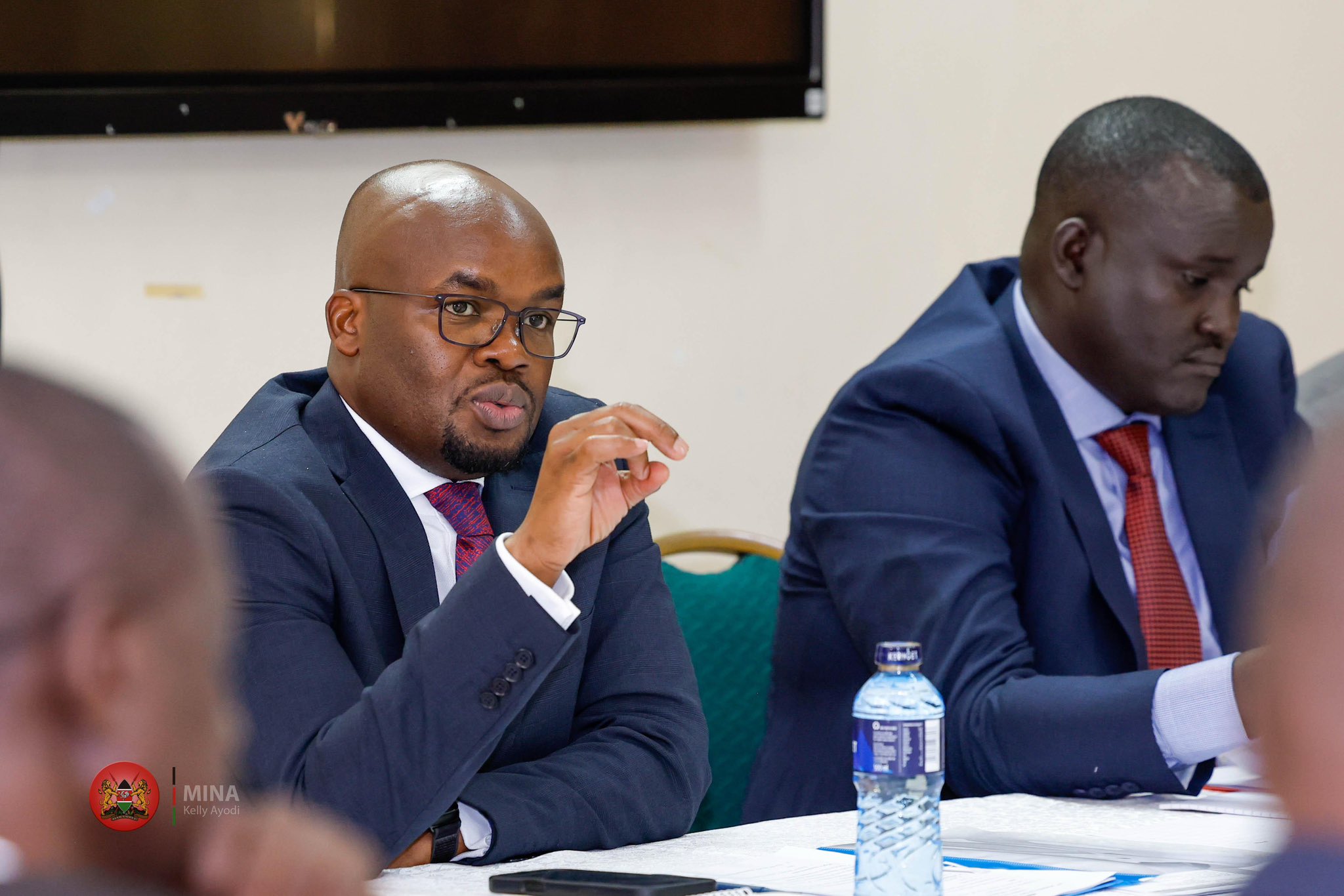Interior Ministry to implement most Maraga-led police reforms despite court ruling

The PS affirmed the government’s commitment to respect the court ruling and indicated that legal redress may be sought. He stressed, however, that the state would continue to implement the 255 recommendations unaffected by the court’s decision.
The Ministry of Interior will proceed with implementing aspects of former Chief Justice David Maraga’s report on reforms in the police, prison, and National Youth Service, focusing on recommendations not affected by the recent court ruling that declared parts of the report unconstitutional.
Justice David Ochami ruled that the President’s decision to establish a task force to improve terms and conditions within the three services — and to assign it roles falling under the National Police Service Commission (NPSC) — was unconstitutional, null, and void.
More To Read
- Former CJ Maraga condemns by-election violence, faults State for laxity
- Former CJ Maraga rejects tribal politics in 2027 bid, sets coalition conditions
- Maraga stakes campaign on integrity, rejects handouts in presidential quest
- Senators order agencies to reconcile records on injured police officers’ claims amid conflicting figures
- Interior Ministry says cyberattack on state websites contained as experts cite extremist motive
- Reprieve for Garissa police as Sh227 million stalled housing project resumes
Reacting to the ruling on Thursday, Principal Secretary for Internal Security, Raymond Omollo, stated that the court's decision would not derail the broader reform agenda. He noted that the ruling affected only a small portion of the recommendations proposed by the task force, which was chaired by Maraga.
Dr Omollo explained that the judgment focused primarily on the role of the NPSC, challenging only 16 out of the 271 recommendations made by the Maraga Task Force.
The contested recommendations include the reinstatement of competitive and transparent recruitment for senior leadership roles ( Inspector General of Police (IG), Deputy Inspector General (DIG), and Director General (DG), the introduction of a vetting process for senior officers, a structured change management plan, amendments to quorum rules, and a redefinition of chairperson qualifications to improve efficiency.
Other affected proposals involved addressing the overrepresentation of police within the NPSC, professionalising human resource procedures, establishing retirement plans, raising entry-level qualifications, and increasing the recruitment age.
The PS affirmed the government’s commitment to respect the court ruling and indicated that legal redress may be sought. He stressed, however, that the state would continue to implement the 255 recommendations unaffected by the court’s decision.
“As Chair of the National Steering Committee, I wish to inform the country that we are on track with these reforms,” he said during a breakfast meeting with committee members, the apex organ overseeing implementation of the proposed changes.
The National Steering Committee comprises, among others, principal secretaries responsible for the services in question and the heads of the three services.
The Maraga report had identified key obstacles to timely reform execution, including funding shortfalls, bureaucratic red tape, delayed policy development, and limited stakeholder engagement.
Notably, modernisation efforts intended to improve operational readiness and logistical capacity have faced major delays, with 70 per cent of prison service reform plans yet to be initiated.
The reforms also seek to enhance accountability, operational efficiency, and the welfare of officers, including salary reviews, recruitment reforms, and infrastructure modernisation.
“These are the men and women who stand at the frontline to safeguard our nation, and we owe it to them to provide better working environments, sufficient tools, and clear policy direction,” said Dr Omollo.
The ministry reports that 50 per cent of the task force’s recommendations have already been successfully implemented, with visible progress resulting from the accelerated changes.
“The reform journey we embarked on is not just about systems and structures; it is about restoring trust, dignity, and professionalism in our security institutions,” he added.
Additionally, the State Department for Housing has allocated 10,000 housing units to officers in the Kenya Prisons Service, and has called for increased budgetary support from the National Treasury to sustain the ongoing reform agenda.
Top Stories Today











































